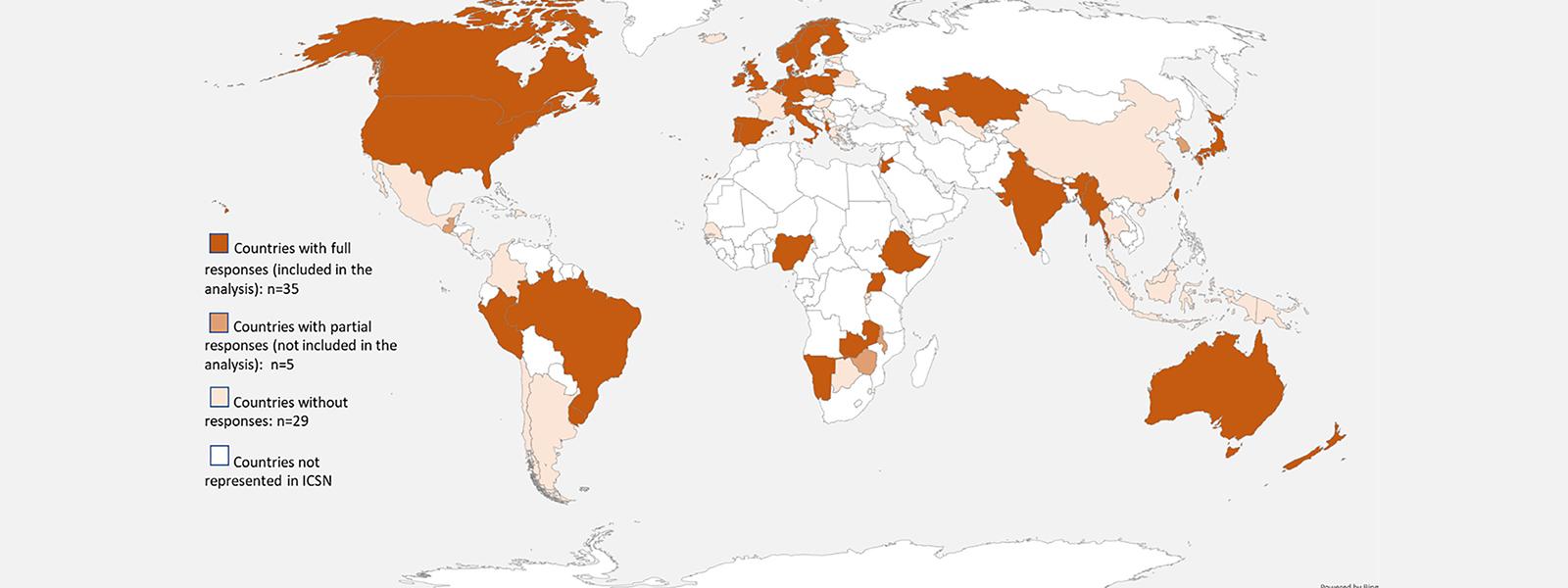
The initial response to the COVID-19 pandemic disrupted cancer screenings as it caused many countries to suspend services following government guidance and to reallocate screening resources, a new study shows.
“The full impact of the suspension of the screening and what this dynamic is going to mean in cancer in general is still to be seen,” said Douglas Puricelli Perin, first author on the study and project manager within the Clinical Monitoring Research Program Directorate at the Frederick National Laboratory.
Screening tests can help detect cancer at an early stage, which may make the disease easier to treat or cure. The International Cancer Screening Network, a global consortium dedicated to cancer control through cancer screening programs, conducted the study published in Preventive Medicine.

Through a survey representing 66 settings across 35 countries, the study found 91 percent of the surveyed settings suspended cancer screening services. For the survey, a setting was defined as an analysis unit that could represent a region, program, facility, research project, or expert group spanning government, academic, private and nonprofit sectors. Of the defined settings, 77 percent made the suspension guided by a government decision, and 26 percent did so based on a preparedness plan.
“From this study, the most important piece was realizing that no one was really prepared to deal with the scale of this pandemic,” Puricelli Perin said. “People providing screening all over the world just didn’t know what to do.”
Puricelli Perin supports the National Cancer Institute's Center for Global Health and coordinates with the International Cancer Screening Network. He collaborated with committee members to create the survey after they heard anecdotes regarding cancer screening suspensions throughout the network. He said they wanted to document decisions and experiences in order to not only continue dealing with COVID-19 disruptions but to prepare for future situations.
“Whether from natural disasters or smaller localized epidemics, very few settings reported using previous experiences,” Puricelli Perin said.
By studying the initial response to the pandemic, Puricelli Perin said he hopes to provide a case study for best practices. The survey captured when and how settings communicated, and what affected decisions to suspend or resume programs.
The International Cancer Screening Network released the 33-item survey to 834 email addresses within its mailing list in mid-May, 2020. Most settings that suspended services in March reallocated resources, as 62 percent reassigned professionals to help in the COVID-19 response and 53 percent repurposed screening infrastructure.
After more than a year since initial shutdowns, Puricelli Perin said the network is looking at documenting more data related to cancer screening and collaborating on models evaluating the impact of COVID-19 on cancer.
“We’d like to see more published about how COVID-19 disrupted cancer screenings to try to prepare for future disruptions like this,” Puricelli Perin said. “It’s important to start the conversation and encourage the research on how to deal with such a large interruption and then how this can resume in a way that you want with the least impact possible on cancer screening and cancer patients."
Media Inquiries
Mary Ellen Hackett
Manager, Communications Office
301-401-8670
